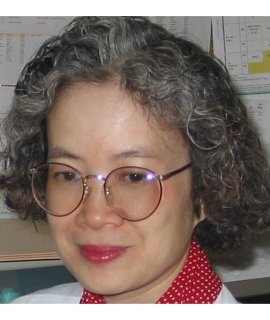Title : Updates on cancer research for detection and management
Abstract:
About 2 in 5 Canadians are expected to be diagnosed with cancer in their lifetime and 1 in 4 die of it. I would discuss interesting updates of advances in cancer research.
Biomarker assays have become routine for some cancers. Circulating tumor cells/cell-free deoxyribonucleic acid (DNA) can detect cancer cells at initial diagnosis, during treatment and follow-up. Photodynamic therapy can treat several precancerous lesions, superficial skin cancers, as well as heal superficial wounds, including radiation-induced ulcers (for which we documented the first Canadian clinical case).
In April 2024 the Food and Drug Administration (FDA) approved vorasidenib for Grade 2 astrocytoma/oligodendroglioma with isocitrate dehydrogenase (IDH)1 or IDH2 mutation. Tumour treating fields were also FDA-approved for slowing down/stopping glioblastoma cell division.
Lung cancer screening in high-risk smokers is performed nowadays with low-dose computerized tomography scans. Early stage inoperable non-small-cell lung cancer (NSCLC) benefits from the highly focused stereotactic ablative radiotherapy (SABR) or stereotactic body radiation therapy (SBRT) with 3-year local control of 70-90% and 2-year survival of 50-70%. For advanced NSCLC, oral systemic therapy improves accessibility and quality of life. The landmark phase III PACIFIC trial compared durvalumab with placebo in patients with unresectable, stage III NSCLC and no disease progression after concurrent chemo-radiotherapy. Consolidation durvalumab significantly improved overall (OS) and progression-free (PFS) survivals, with manageable safety. New ADAURA data show adjuvant osimertinib significantly improved OS, cutting the risk of death in half when compared with placebo for epidermal growth factor receptor (EGFR)-mutated NSCLC. The FLAURA trial studied osimertinib versus gefitinib or erlotinib in treatment-naive patients with advanced NSCLC with EGFR exon 19 deletion or L858R mutations. Median PFS with osimertinib is significantly longer at 18.9 months compared with 10.2 months with standard EGFR tyrosine kinase inhibitors (TKIs). Subgroup analysis also demonstrated a PFS benefit in patients with CNS metastases!
Locally advanced or metastatic basal cell carcinomas may benefit from vismodegib, a Hedgehog pathway inhibitor. Recently, cemiplimab, a PD-1 inhibitor, was approved for advanced squamous and basal cell carcinomas. Other PD-L1 inhibitors, including avelumab, pembrolizumab and retifanlimab, have received FDA approval for advanced Merkel cell carcinomas. In addition to multiple immune checkpoint inhibitors, tumor-infiltrating lymphocyte (TIL) therapy is used in metastatic melanoma. Skin brachytherapy delivers localized radiation with excellent cosmetic outcomes. Mohs surgery enhances cosmetic results, reduces positive margins and facilitates tissue reconstruction. Lymphovenous anastomosis (LVA) effectively improves lymphedema in 23-100% of patients by redirecting lymphatic flow to nearby veins.
Androgen receptor pathway inhibitors (ARPI) are used as concurrent and adjuvant therapy for node-positive prostate cancer. Radio-ligand treatment for castrate-resistant prostate cancer improves OS. Renal cell carcinoma can now be cured by SABR, again an achievement for the inoperable elderly.
In conclusion, advances in cancer detection and treatment have improved cancer outcome and quality of live in recent decades. Future challenges are controlling health care costs (sustainability issues) and increasing access in developing countries. Lastly, I would like to thank each member of my team, the International Oncology Cancer Research Group (IOCRG).



